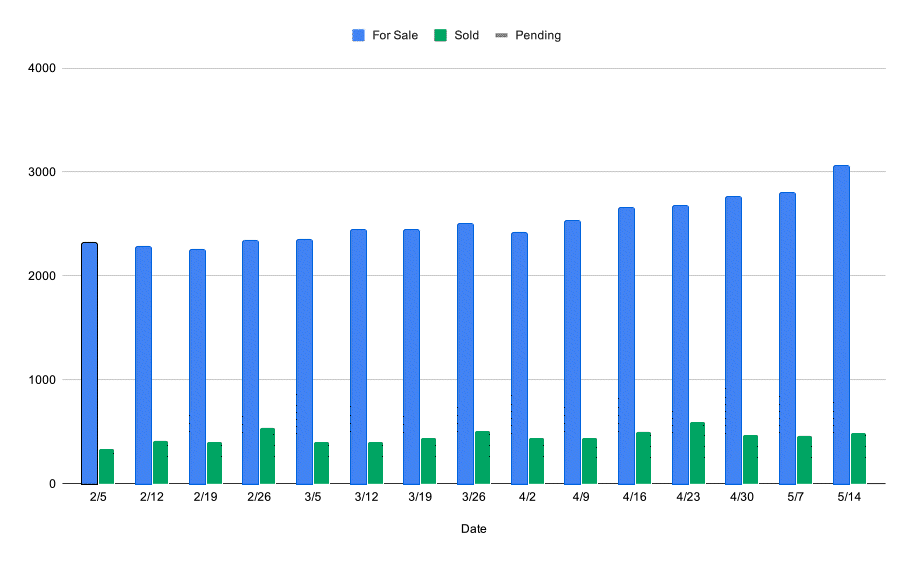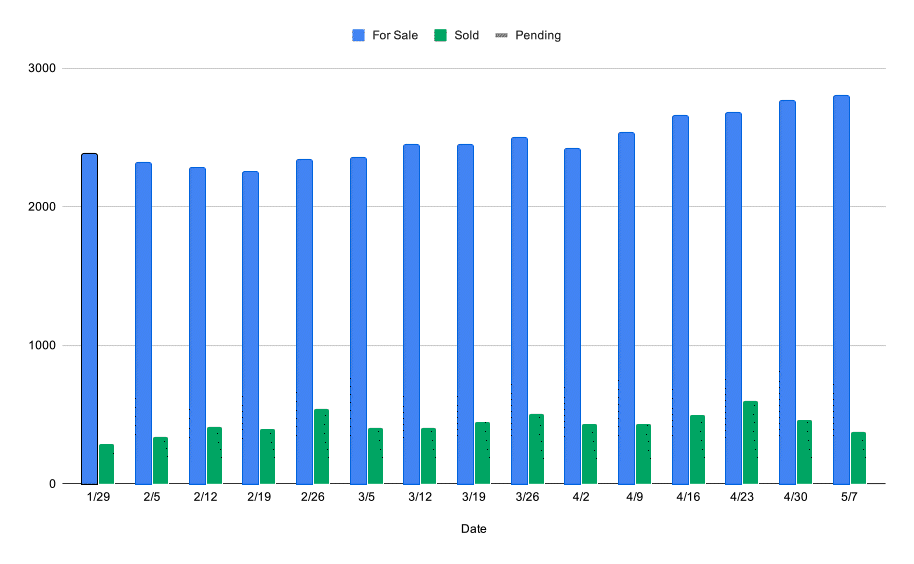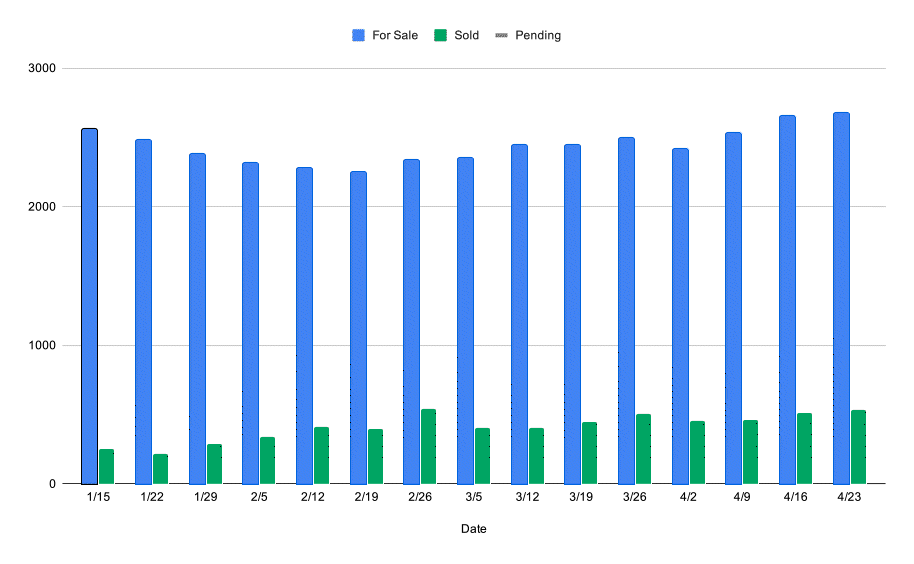|
Closing on a House: Settlement Tips for Home Sellers
SOURCE: Realtor.com
Before closing on a house, you need to get to the settlement table. You’re near the end of the process of selling your home, but don’t breathe a sigh of relief just yet. While it’s certainly true that you can let go of the anxiety of needing to show your home at any moment, you still need to cooperate with your buyer, the buyer’s agent, and the commitments made in the contract.
As a seller, here’s what you need to know about the settlement process.
What contingencies impact sellers before closing on a house
While the burden is on the buyer to finalize financing for the home purchase and to obtain homeowners insurance, some contract contingencies will impact you, too, especially if you’re living in the home.
Before closing on a house, most transactions include a home inspection, so you’ll need to make your home available to the inspector and then negotiate with the buyers about anything the inspection turns up according to the terms of your contract.
Aside from the home inspection, some contracts (and some lenders) call for a termite inspection and a radon gas inspection. In those cases, you or your listing agent or the buyer’s agent will need to make the home available for inspection.
Another important step prior to closing on a house is the appraisal. If the appraisal comes in higher than the sales price, then the buyers can relax in the satisfaction they’ve purchased a home for less than its market value. Once the contract has been signed, a seller can’t renegotiate the price higher.
But if the appraisal comes in lower than the sales price, then the buyer’s lender will limit the loan amount to that lower value. The buyer may have to come up with additional cash to cover the financing gap or may ask you to renegotiate the contract. Your agent can advise you about the best way to handle this situation, but you and the buyer are also bound by the contract terms.
Before you go to settlement, you should go over the contract with your agent and ensure you’re ready to fulfill any obligations you’ve made in terms of what items will be conveyed to the buyer as well as any repairs or improvements you promised to make.
Negotiating a settlement date
Buyers and sellers typically negotiate a settlement date that is mutually agreeable. If you have sold your home and are not yet ready to move into your next residence, you can sometimes negotiate a “rent-back” with the buyer that allows you to stay in the home after the settlement by paying rent to the buyer.
In general, lenders restrict rent-back to a maximum of 60 days. Check with your buyer and your agent if you need to rent back for longer than two months.
Alternatively, some sellers allow the buyers to move in before settlement. In either case, it’s crucial to have a written agreement about who is responsible if something happens to the house or its contents during the transition period.
Settlement services
The decision about who provides settlement (also known as closing or escrow) services varies from one market to another. In many places, the buyer chooses the settlement company, but in others the seller chooses. When closing on a house, the buyer will provide funds to buy your home and the settlement agent will review the sales agreement to determine what payments you’ll receive. The title to the property is transferred to the buyers and arrangements are made to record that title transfer with the appropriate local records office.
At a typical closing, adjustments are made to the final amounts owed by the buyer and you as the seller. For example, if you’ve been paying your property taxes through an escrow account, you may be credited extra for prepaid taxes or you may receive less money at settlement if the property taxes haven’t been paid properly.
Once the settlement papers are signed and the house keys are transferred, you’re free to move onto your next home.
SOURCE: Realtor.com
May 17, 2023 Weekly Market Watch with Chris Doucet
|
Why Buying a Home Makes More Sense Than Renting Today
SOURCE: Keeping Current Matters
Wondering if you should continue renting or if you should buy a home this year? If so, consider this. Rental affordability is still a challenge and has been for years. That’s because, historically, rents trend up over time. Data from the Census shows rents have been climbing pretty steadily since 1988.
And, data from the latest rental report from Realtor.com shows rents continue to grow today, even though it’s at a slower pace than we saw at the height of the pandemic:
“In March 2023, the U.S. rental market experienced single-digit growth for the eighth month in a row . . . The median asking rent was $1,732, up by $15 from last month and down by $32 from the peak but is still $354 (25.7%) higher than the same time in 2019 (pre-pandemic).”
With rents much higher now than they were in more normal, pre-pandemic years, owning your home may be a better option, especially if the long-term trend of rents increasing each year continues. In contrast, homeowners with a fixed-rate mortgage can lock in a monthly mortgage payment for the duration of their loan (typically 15-30 years).
Owning a Home Could Be More Affordable if You Need More Space
The graph below uses national data on the median rental payment from Realtor.com and median mortgage payment from the National Association of Realtors (NAR) to compare the two options. As the graph shows, depending on how much space you need, it’s typically more affordable to own than to rent if you need two or more bedrooms:
So, if you’re looking to live somewhere where you have two or more bedrooms to accommodate your household, give you more breathing room to spread out your belongings, or dedicate the extra space to practice your hobbies, it might make sense to consider homeownership.
Homeownership Allows You To Start Building Equity
In addition to shielding you from rising rents and being more affordable when you need more space, owning your home also allows you to start building your own equity, which in turn grows your net worth.
And, as home values typically rise over time and you pay off your mortgage, you build equity. That equity can set you up for success later on because you can use it to help fuel a move to an even bigger space down the line. That’s why, according to Zonda, the top reason millennial homeowners bought their home over the past year was to build their own equity instead of someone else’s.
Bottom Line
If you’re trying to decide whether to buy a home or continue renting, give me a call so we can explore your options. With rents rising, it may make more sense to pursue your dream of homeownership.
SOURCE: Keeping Current Matters
May 3, 2023 Weekly Market Watch with Chris Doucet
|













